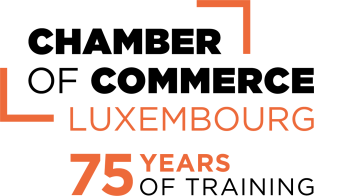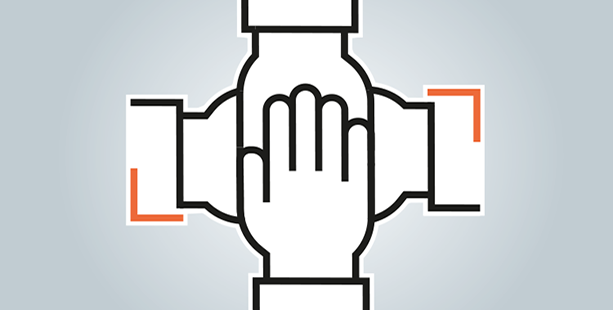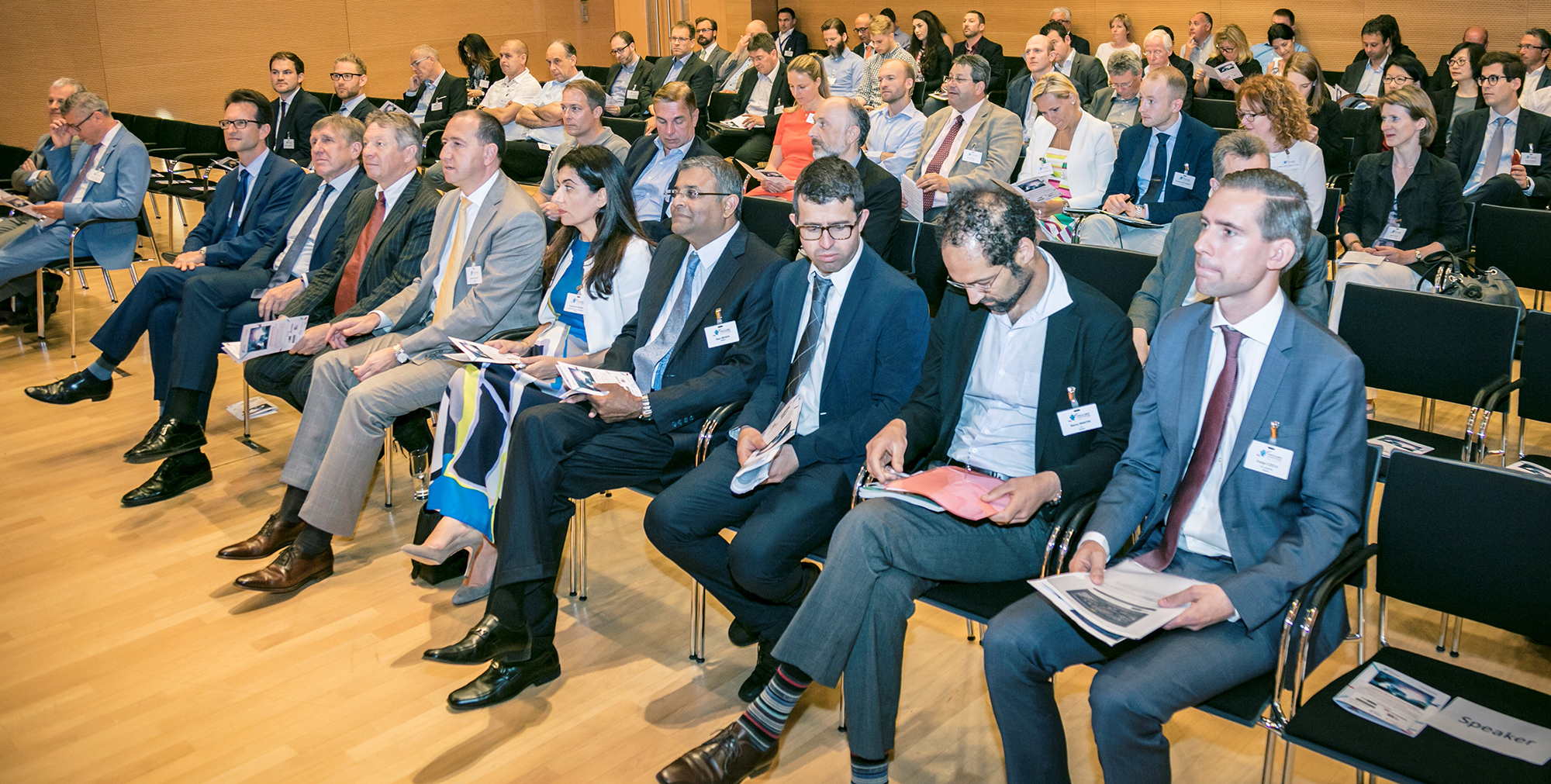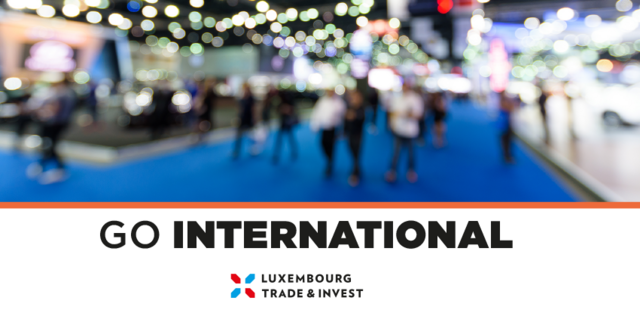
8th Cluster for Logistics Conference: Cooperation in Intermodality and Innovation
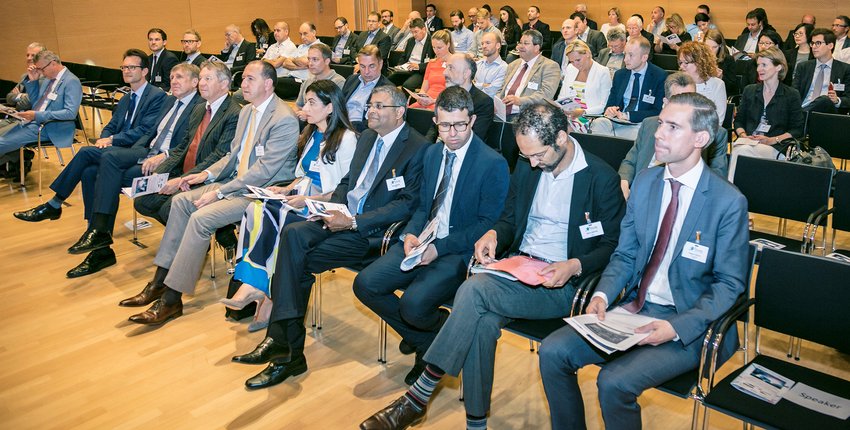
Combining different modes of transport (rail, ship, truck or air) in order to find the best possible quality, speed and price is successful due to harmonized containers in global trade. Current challenges for logistics service providers require a change of mindset where cooperation and innovative solutions are key. At this year’s Cluster for Logistics Luxembourg (C4L) Spring Conference on May 30th at the Chamber of Commerce, cooperation in intermodality and innovation were main topics with an international panel of speakers sharing their experience and best practices. More than 90 guests from the logistics and services sector listened to a high-level panel and used the networking opportunity.
C4L President since 2013, Mr Carlo Thelen gave an overview of the past projects of the cluster. “Intermodality and Innovation as typical cluster subjects are key for the development of sustainable competitive trade and commerce. Cooperation across modes of transport is the backbone of the success of Luxembourg’s trade and industry and we would like to inspire you by sharing best practices, international expertise and innovative offerings today. With the 3rd Industrial revolution, as we implement a roadmap for Luxembourg, multimodality plays a central role in the development of common transport platforms and e-processes.”
As keynote speaker, the Minister of Infrastructure and Sustainable development, Mr François Bausch presented how the government facilitated the logistics sector and urged the present actors to adapt their mindset to the challenges ahead. “I’m sure innovation will stay the lifeblood of Logistics to meet the needs of the client”, said Bausch, clearly agreeing with German Minister Dobrindt who sees digitalization as key aspect to tackle the challenges of the future. “Wer nicht digitalisiert verliert”. Logistics actors have to prepare for disruptive trends, e-processes or additive manufacturing like 3D Printing, that could allow production to take place nearer to consumers and transform industrial sectors with potentially more than 10% transport volume going 3D digital for example the spare parts business. How can Luxembourg play a role in those new fields that could also reduce unnecessary transport around Luxembourg. Mr Bausch restated that the government longer term view is to establish a Single window for Logistics, overhaul the customs IT systems to meet the new Union Customs code (UCC) and ratify the e-CMR protocol while participating in a BENELUX pilot allowing e-consignment note for international road transport. “The bigger picture forces us to recognizes e-logistics as a key sector for Luxembourg and push to make it digital, more sustainable and lower its environmental footprint, as transport is a sector where the total output of CO2 is increasing year on year”.
Intermodal transport is not only in the focus of government policies in Luxembourg but also abroad. The European multimodal transport, expressed in tons per kilometer, has increased by over 3 percent in 2016, according to the Union for Road-Rail Combined Transport. In order to tackle traffic and pollution issues, the EU Commission called 2018 the year of multimodality to focus on integration of all modes of transport across the EU.
Our panel of speakers offered a diverse view of the complexity of the supply chain trends.
Mr Francois Bausch, Minister of Sustainable Development and Infrastructure |
Mr Carlo Thelen, Director General, Chamber of Commerce, president C4L |
Mr Michel Rzonzef, Vice president Commercial tires, Goodyear |
Mr Florian Czech, Business Development CFL multimodal |
Mrs. Gayane Afrikian, Senior Economic Policy Adviser, Department of Economic Development, Dubai |
Mr Nik Delmeire, Secretary General European shipper’s council (ESC), Brussels |
Mr Mark Scheerlinck, managing director Centraal Boeking Platform (CBP) Antwerp |
Mr Malik Zeniti, Manager Cluster for Logistics |
Prof. Benny Mantin, Uni.lu – LCL (Moderator) |
Mr Ram Menen, Retired Aviation and Air Cargo Executive (Panelist) |
The tire industry is already integrating innovative processes to meet customer needs in the transport sector and supporting reliability in intermodality. To the public, truck tires may seem a basic and unexceptional feature but they are crucial for an efficient and cost-effective operation. The digitization allows major improvements, said Mr Michel Rzonzef, Vice president Commercial tires of Goodyear. New digital technologies allow transport companies to improve reduce costs and increase safety and reliability. Tire pressure monitoring systems allows proper pressure monitoring lowering consumption and can predict punctures weeks in advance to avoid them. “This is already available today”, said Mr Rzonzef. In a not so distant future, tires developed in Luxembourg will be able to react even better to external conditions by adapting shape and pressure.
Mr Florian Czech from the strategy department of CFL multimodal presented the new Bettembourg hub made operational in 2 phases that will be officially inaugurated on July 7th. He also highlighted the challenge from different view that exist to set-up trains to meet shippers and logistics providers key expectations in frequency, flexibility and reliability. For Mr Czech, the importance of central intermodal terminals which can act as hubs across Europe is a key factor for future modal shift and more sustainable logistics.
Dubai has developed opportunities in logistics through collaboration across hubs.
Mrs Gayane Afrikian a Senior Economic Policy Adviser with Dubai Government’s Department of Economic Development from Dubai stressed that cooperation and cluster thinking made the United Emirates a leading global logistics hub, not only for the region but also on a global scale. From the reinforcement of infrastructure that started around the 1960s to the creation of key companies Emirates Skycargo in 1985, the policy of the state helped create different multimodal hubs for shipments between Asia, Europe and Africa. Virtual corridors between sea- and airfreight and free-trade zones allowed to deliver a faster and cheaper service.
Competition and collaboration do not rule each other out, said Mrs. Afrikian. The Cluster platform of Dubai is indeed successfully supporting stakeholder collaboration. The Department of Economic Development strategic cluster thinking was able to convince the businesses to collaborate and implement improved processes. To achieve this, constructive criticism from the logistics players was encouraged. “Dubai acts upon opportunities and was not afraid of criticism”, added Mrs. Afrikian. By working together, the different sea and air hubs and its service providers were able to enhance skills and productivity while reducing bottlenecks and paperwork.
Mr Nik Delmeire from the European Shippers Council presented the association that exists since 1963. Like a Cluster its role is to bring together shippers and pass important information to logistics providers. “Logistics players that forge alliances to resist strong power from the clients. Shippers need to speak for their own needs, or others will do it for them”, said Mr Delmeire. The goal is to collaborate: “We like when logistics companies are reaching out to shippers". The association is working on major topics, reaching from cooperation projects to legislative harmonization. Mr Delmeire is looking forward to welcome a Luxembourg shippers representation in his network.
When asked about hurdles, a recurring topic was the difficulty to induce change in the process and persuade to change as positive, said Mr Mark Scheerlinck, manager of the Central Booking Platform (CBP) at the Port of Antwerp. Speaking about many new IT companies from Belgium active in Logistics he said: “You cannot tackle disruptions or changes alone. The platform is like a Hotel booking platform for multimodal transport and very simple to use”, said Scheerlinck. The CBP is an initiative of the port of Antwerp, VEA (Antwerp Forwarders Association) and the Flanders waterways centralising information about existing sea, barge and rail connections offering users combined solutions complementary to road transport. The neutral platform enables logistics players to send consolidated or unconsolidated consignments. CBP is a solution in the LEAN & GREEN program aiming to reduce congestion and CO2 emissions.
More trust requiring a change of mindset.
A panel discussed the challenges and opportunities in building new cooperation models across modes. Mr Ram Menen, a retired Air Cargo Specialist, and member of the founding team of Emirates Airline brought an additional level of expertise to the panel. Moderator Prof. Benny Mantin, director of the university Luxembourg Centre for Logistics and Supply Chain Management (LCL), and Malik Zeniti, Manager of C4L were interested in the main hurdles in setting up collaborations and identifying low-hanging fruits. Good infrastructures are important and need to be available and planned ahead of the big volumes but changing the mindset proves to be the main hurdle in adapting your processes, according to Mr Menen. “Distrust or paranoia about security can stop progress and makes success difficult”, stated Mr Menen. While many intermodal systems work well the combination of air and maritime still is underutilized, and you can learn from Dubai, he added. The logistics sector has to address this matter together and the different modes and hubs can learn a lot from each other.
Mr Malik Zeniti gave an overview of the past and upcoming events and projects of the Clutser for Logistics visible under www.c4l.lu or social media feeds Twitter and LinkedIn to stay up-to-date. The annual report 2016 is available and all presentations will also be available for download. The Cluster thanks the sponsors of the event for the support, the guests and press to make a successful conference possible.
Download the presentations and biographies on the website www.c4l.lu
